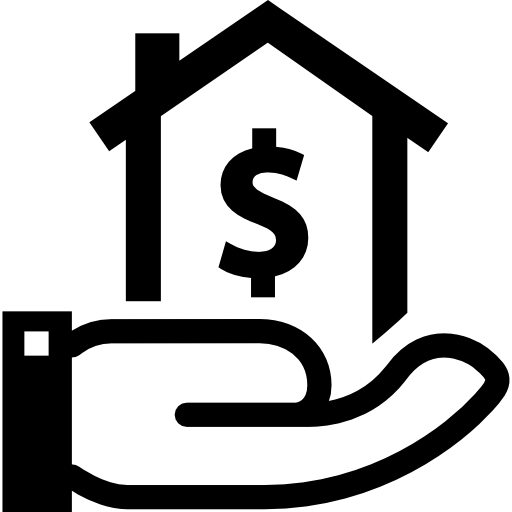Discovered a lien on your property? Don’t panic.
With $22 billion in unpaid property taxes in 2023, you’re not alone.
Selling a house with a lien is possible—it just requires strategic planning.
We’ll break down everything you need to know: understanding liens, navigating legal complexities, and finding the best path to a successful sale.
Your financial challenge can become an opportunity with the right approach.
Key Notes
- Multiple lien types exist: voluntary (mortgage) and involuntary (tax, judgment).
- Resolve liens before selling through negotiation, payment, or cash buyer options.
- Title search reveals liens; buyers typically require liens to be cleared.
- Unresolved liens can delay or prevent property sale, risking serious consequences.
Can You Sell a House with a Lien?

Yes, you can sell a house that has a lien on it.
However, there are important conditions to consider. The legality of the sale generally hinges on the type and status of the lien.
Voluntary liens are usually easier to manage since the sale proceeds can typically cover those debts. In contrast, involuntary liens can complicate the sale process.
Most buyers will insist that the lien is resolved before closing, as they want a clear title to the property. This means you may need to address the lien sooner rather than later.
Types of Liens & Their Impact on Real Estate Sales
A lien is a legal claim against your property, allowing a creditor to secure repayment of a debt you owe.
This means that if you don’t pay that debt, the creditor may have the right to force the sale of your property to collect what you owe.
Liens can arise from various situations, and they generally fall into two main categories: voluntary and involuntary liens.
Voluntary Liens: Agreements You've Made
Voluntary liens occur when you consent to put your property on the line in exchange for a loan or service. These are typically tied to agreements you actively entered into.
Here’s what you need to know:
Mortgage Liens
When you take out a mortgage to buy your home, the lender places a voluntary lien on the property.
This lien remains until you pay off the mortgage, giving the lender a claim to your home as security for the loan.
Mechanical Liens
If you’ve had work done on your property—say, renovations or repairs—and you haven’t paid the contractor, they might file a mechanical lien.
This gives them a legal right to claim against your home until you settle the debt for their services.
UCC Liens
Sometimes, businesses use their properties as collateral for loans. A UCC lien is filed in these cases, allowing financial entities to secure their interests until the loan obligations are met.
Involuntary Liens: Uninvited Claims
Involuntary liens, on the other hand, are imposed without your agreement, often as a result of unpaid debts leading to serious financial implications.
Here are some key examples:
Tax Liens
If you neglect to pay your property taxes, the government can place a tax lien on your home. This legal claim ensures that your tax obligation is prioritized.
The National Tax Lien Association reported that in 2023 in the US, a staggering $22 billion in property taxes went unpaid. This highlights how critical it is for homeowners to stay on top of their obligations and proactively manage their finances.
Judgment Liens
If you owe money and a court issues a judgment against you, a judgment lien can be placed on your property. This means you lose some control over your home until the debt is satisfied.
HOA Liens
Failing to pay your homeowners association fees? They have every right to place a lien on your property to recover the unpaid dues.
How To Sell a House with a Lien
1. Identify the Lien
Start by finding out what you’re dealing with.
The first step is to conduct a title search. This legal inquiry will uncover any existing liens against your property.
You can do this through your local county recorder’s office or hire a title company to streamline the process for you.
2. Know Your Lienholder and Amount Owed
Once you confirm that a lien exists, it’s important to reach out to the lienholder to find out exactly how much you owe.
Understanding your financial responsibilities will help you decide on the best option for your sale.
3. Explore Your Options
Now that you know the lien’s details, it’s time to explore your options:
- Negotiate: Contact the lienholder to discuss settling the debt. In some cases, they may agree to a reduced amount or a manageable payment plan.
- Pay It Off: If you’re in a good position financially, paying off the lien in full before you sell can simplify the process and make your home more appealing to buyers.
- Consider Selling to a Cash Buyer: If time is of the essence, selling to a cash buyer for a quick, hassle-free sale, avoiding lengthy market waits and the potential consequences of an outstanding lien.
4. Prepare Your Home for Sale
Once you’ve tackled the lien situation, it’s time to prep your house for the market.
Clean it up, make any necessary repairs, and consider staging it to enhance its appeal. Remember, first impressions matter!
5. Get Expert Help
It’s highly advisable to enlist a real estate agent with experience in selling homes with liens. They can provide valuable insights and help you navigate the nuances of the market.
6. Market Your Property
Now that everything is in order, it’s time to list your home.
Make sure to include high-quality photos and engaging descriptions to draw in potential buyers. The more eyes on your listing, the better!
7. Handle Offers with Transparency
As you receive offers, be open about the lien situation. This honesty builds trust with buyers and sets the stage for better negotiations.
Work through offers to find terms that work for both you and the buyer.
8. Closing the Sale
During the closing process, collaborate closely with your escrow agent or attorney. They will ensure that any outstanding liens are settled using the sale proceeds.
Make sure you obtain a lien release document from the creditor confirming that the lien has been lifted from your property’s title.
9. Wrap Up the Paperwork
After the sale is finalized, confirm that all documents are correctly filed and no lingering liens remain on your title.
Keep copies of everything related to the sale and lien release for your records—you never know when you might need them.
Buying a House with a Lien

Now, let’s flip the perspective and examine what it means for buyers considering a house with a lien:
Possibility of Purchase
You can indeed buy a house with a lien. However, sellers usually must clear the lien before the sale can be completed.
While buyers may include the lien in their offer, this often requires negotiation with the seller and their creditors.
Title Search
Conducting a title search is crucial before purchasing. This legal inquiry helps identify any existing liens, allowing buyers to understand what financial obligations they may inherit.
Negotiation and Payment
Buyers can negotiate with the seller to pay off the lien using proceeds from the sale.
If the seller cannot pay off the lien, the buyers might have to cover it as part of their offer, which complicates financing and increases overall costs.
Risks Involved
One of the primary risks of buying property with a lien is that liens are tied to the property itself and not just the previous owner.
This means that once you purchase the home, you assume responsibility for the lien and any associated debts.
Potential Complications
If a lien remains unresolved, it can delay closing or even prevent the sale altogether. Buyers should be prepared for potential negotiations with creditors or legal actions if necessary.
Comparison: Lien Removal Responsibilities
| Selling a House with a Lien | Buying a House with a Lien | |
|---|---|---|
| Seller clears lien before sale | ✔️ | ❌ |
| Title search essential | ✔️ | ✔️ |
| Buyer assumes responsibility | ❌ | ✔️ |
| Cost implications | ✔️ | ✔️ |
| Negotiation with creditors | ✔️ | ✔️ |
Frequently Asked Questions
Can you sell a house with a tax lien?
Yes, but it is crucial to pay the tax lien before finalizing the sale. Buyers typically will not proceed unless this obligation is settled.
What happens if you sell a house with a lien?
You must resolve the lien to transfer title. If a lien remains unpaid, the sale could fall through, leaving you in financial distress.
Do liens need to be paid before closing?
In nearly all cases, liens must be cleared before closing. Title companies will require documentation that any outstanding debts have been resolved to ensure a clear transfer of ownership.
Conclusion
Yes, you can sell a house with a lien on it, but it takes being proactive and staying ahead of the game.
Knowledge is your secret weapon in this process. By pinpointing the type of lien you’re dealing with, navigating negotiations with creditors, and considering a quick sale to a cash buyer, you can turn this challenge into an opportunity.
Remember, letting liens linger can lead to serious consequences, including foreclosure, so tackling these issues head-on is crucial.
If you’re feeling overwhelmed or need a swift solution, selling for cash could be your winning move. Ready to unlock a fresh start? Get your free, no-obligation cash offer today.





